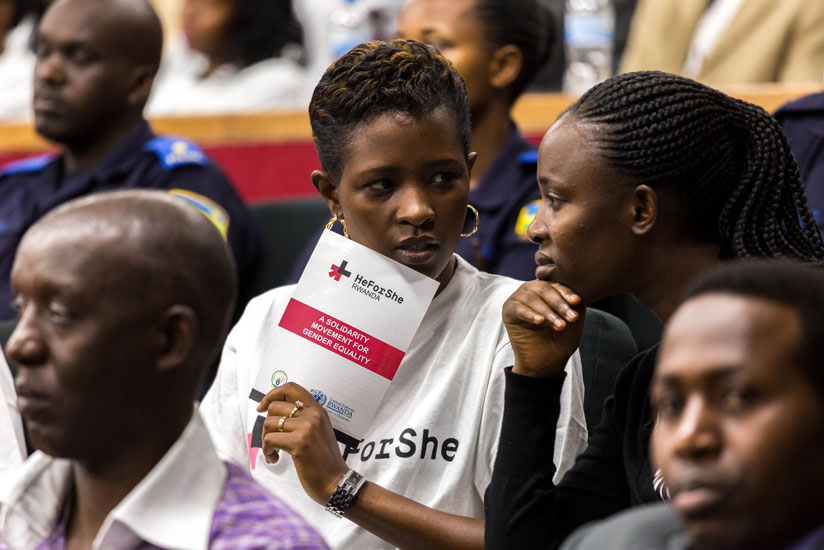
Looking beyond 2015, the Government’s 2020 target is for women to comprise 40% of decision-making positions.Rwanda has made great progress in promoting gender equality, largely driven by strong Government committment. Rwanda was second in the world according to the 2009 Social Watch Gender Equity Index, with only Sweden having a higher score. Gender equality is enshrined in the constitution and Rwanda was the first country in the world to have more than 50% female members of Parliament. However, women are generally underrepresented in other political institutions (GMO 2011) and traditional patriarchal attitudes continue to prevail. Rates of domestic violence are, for example, very high and there continues to be a high level of tolerance for domestic violence by both men and women (NISR et al 2011).
There is a Ministry for Gender and Family Promotion, a gender monitoring office, a commitment to gender-based budgeting, and in recent years there has been a strong emphasis on fighting gender based violence. Women have the same rights to inherit land as men. Girls are equally as likely to attend school as boys and there is a Girls Education Policy and Implementation Plan in place. However, a gender gap remains in public sector higher education, particularlly in science and engineering, but women are taking advantage of the opportunities to study in private higher education institutions. Although the majority of women, especially poor women in rural areas, have yet to benefit. The gap between men and women employed in non-farm work is widening and the target of 50% of women in paid non-agricultural employment by 2015 is unlikely to be met.
In order to accelerate progress to achieve MDG 3 targets, programs must focus on women’s economic empowerment and provide support for non-farm jobs, teacher training to improve curriculums in schools; engendering vocational, technical, and higher education; and fighting against gender-based violence and negative cultural attitudes toward women. In order to ensure sustainability, men should be involved in all processes, making men responsible actors in reaching a gender-equal society in Rwanda. Involving men in training and skill building for gender equality will help improve understanding the universal benefits of the empowerment of women.
|UN